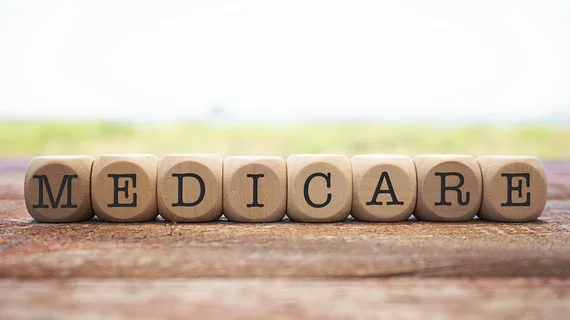Support for Medicare for all remains above 50%
As progressive Democrats increasingly push for a universal healthcare plan known as Medicare for all, support among Americans is mixed when it comes to paying for it, according to a recent poll from the Kaiser Family Foundation.
In January, public support for Medicare for all, in which all Americans would get their healthcare from a single government plan, came in at 56 percent. Forty-two percent were opposed. Democrats were much more likely to favor Medicare for all (81 percent) compared to Republicans (33 percent).
The findings come at a time when Medicare for all is increasingly entering the fray of the healthcare debate in Washington, D.C. In particular, freshman House of Representatives member Alexandria Ocasio-Cortez (D-NY) and Senator Bernie Sanders (I-VT) have voiced support for Medicare for all. In September of 2018, Rep. Pramila Jayapal (D-WA) launched a political action committee to fund candidates who support plans for a single healthcare system.
The cost of such a plan has been estimated at $32.6 trillion over 10 years. CMS Administrator Seema Verma has stated that a national health plan is “scary,” while President Trump and HHS Secretary Alex Azar have both bashed the idea.
Favorability measures
Among Kaiser's poll respondents, there is greater support for other alternatives that still expand the government’s reach in providing health insurance, including optional Medicare for all (74 percent favor), Medicaid buy-in (75 percent favor) and a Medicare buy-in for ages 50-64 (77 percent favor).
Among Republicans, support for the government doing more to help provide health insurance has declined over the last several years, dropping from 72 percent in November 2006 to just 40 percent in January 2019. Support among Democrats has remained constant, dipping slightly from 96 percent in November 2006 to 94 percent in January 2019.
Interestingly, terminology had an effect on public opinion, with people feeling more positive toward terms such as "Medicare for all," "universal health coverage" and "national plan," compared to "single-payer health insurance system" and "socialized medicine."
More people were also supportive of Medicare for all when they heard it would eliminate most healthcare costs, such as premiums and out-of-pocket expenses, as well as guarantee insurance as a right for all Americans. However, respondents were much less supportive when hearing a plan would require most Americans to pay more in taxes and result in potential delays in medical tests and treatments, threats to the current Medicare program and the elimination of private health insurance companies.
Furthermore, 77 percent said they would expect to pay more in taxes to cover the cost of health insurance, while 67 percent said they would be able to access the healthcare they needed, and 55 percent believed they would be able to keep their current health insurance.
The findings also backed up other reports that healthcare has become one of the top voting issues. Overall, 49 percent of voters said a candidate’s stance on a national health plan was the single most important or a very important factor. Among Democrats, that figure was 61 percent, while 36 percent of Republicans said the same. Democrats still were more interested in improving and protecting the ACA rather than passing Medicare for all––51 percent to 38 percent, respectively.

